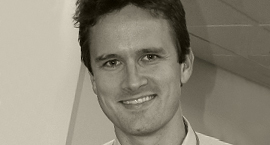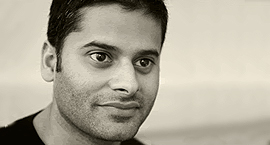
Simple Education essential guides Advances in Co-registration, Coronary Physiology & Intra Coronary Imaging is the premier international course focusing on intracoronary co-registration run by a leading and world renowned international faculty. This is the first course specialising in coronary co-registration, and builds on the 7 years of courses which have been run and quickly established as the leading global interventional course in state-of-the-art coronary physiology and intracoronary imaging. This course provides all you need to know to understand coronary physiology from learning the background basics of coronary physiology and imaging to understanding the clinical trial data and implementation of co-registration in the catheter laboratory. The course is centred around live case demonstrations, case examples, and break out sessions to ensure that you can integrate new knowledge into your clinical practice.
An online teaching resource, the Simple Education application, will give you access to video content from the days' talks, and a raft of other online educational and learning resources which continue your learning experience and connect you with the interventional community after the course finishes.
Dr Justin Davies is a consultant interventional cardiologist at Hammersmith Hospital, Imperial College NHS Trust, London. After training at Imperial College, he won a prestigious BHF research fellowship to study arterial haemodynamics. Since then he has continued to work on the development of mathematical algorithms to aid understanding of large artery physiology and to develop new tools to assess arterial disease. The holder of several patents, he has published widely in the field of hypertension, coronary and large artery physiology and is the winner of many national and international awards. He has several international collaborations, and is the developer of iFR and the co-principal investigator of the ADVISE studies, the DEFINE-FLAIR, ORBITA and DEFINE-PCI studies. Justin also has an interest in renal denervation, and has lead the first-in-man studies to evaluate the safety of this technique to patients with chronic systolic heart failure (REACH studies).
Prof Carlo Di Mario is currently Professor of Cardiology, University of Florence and Director of the Structural Interventional Cardiology Division of the University Hospital Careggi, Florence, Italy. Previous posts included 15 years as Professor of Clinical Cardiology at Imperial College of Sciences, Medicine & Technology, London and Consultant Cardiologist at the Royal Brompton Hospital. He also practiced at the San Raffaele Hospital, Milan, Italy. He trained in Cardiology at the University of Padova, Italy, but he soon moved for a more in-depth interventional trying at the Thoraxcentre of Rotterdam, the Netherlands, where he also completed a PhD in Intracoronary Ultrasound Imaging and Doppler. He maintains an active clinical involvement performing more than 200 PCI per year in the last 15 years in London with the special interest in the treatment of chronic total occlusions, bifurcations, calcified lesions and diffuse disease. He is a regular TAVI operator and certified implanter for the Medtronic Evolute R and Edwards Sapien 3 transcatheter aortic valves. He participated in more than 130 MitraClip implantations in London and in the last few months back in Italy has also started transcatheter mitral treatments with clips, valves and direct annuloplasty. Professor Di Mario pioneered the use of intracoronary Doppler, pressure measurement, ultrasound and optical coherence tomography. These techniques have become the gold standard for physiological assessment of lesion severity and have revolutionised the technique of stent implantation with the use of high pressure dilatation which led to the universal application of this method in interventional cardiology. He is now applying these intravascular techniques for the guidance of implantation of fully bioabsorbable stents and optimal stent apposition across bifurcations and in complex lesions. He has led or participated in studies and trials to improve the technical success of recanalisation of chronic total occlusion and demonstrate its clinical usefulness. He cooperated with Dr Davies to the validation of iFR to assess lesion severity and discriminate the contribution of individual lesions, and with Dr Lyon in the intracoronary delivery of SERCA-2 genes via adenoviral vectors in the CUPID2 trial. He was Principal Investigator of the CARESS in AMI trial, a large multicentre trial showing that patients who receive fibrinolytic therapy for ST-elevation myocardial infarction benefit from early angioplasty. This trial and a subsequent meta-analysis have led to a change in the European Society of Cardiology and AHA/ACC Guidelines for treatment of STEMI patients. He is the PI and main recruiter of the Disrupt-CAD study with coronary lithotripsy delivered via dedicated balloons, due to be reported at ACC March 2017.
Prof Andrew Sharp qualified from Edinburgh Medical School in 1998 and was appointed as a Consultant Cardiologist at the Royal Devon and Exeter Hospital in 2011. He was appointed Honorary Associate Professor at the University of Exeter in 2018. He conducted his early training at the Royal Infirmary of Edinburgh, before moving to London for his senior clinical training. He completed the prestigious Milan-Imperial Interventional Cardiology Fellowship programme, having spent a year in San Raffaele and Columbus Hospitals, Milan, Italy, under the tutelage of Professor Antonio Colombo. He also spent three years training in interventional cardiology at St Mary’s Hospital and The Hammersmith Hospital (Imperial College Hospitals) in London. Professor Sharp was awarded an MD postgraduate research degree from the University of Edinburgh for his work on the hypertensive heart and now leads a large research programme at the Royal Devon and Exeter Hospital. He has been Principal Investigator in more than 30 ethically-approved research trials since 2012 and has published extensively. He is regularly invited to lecture at national and international conferences in the fields of coronary artery disease, pulmonary embolism and hypertension.
Dr Rasha Al-Lamee is an Interventional Cardiology Consultant at Imperial College Healthcare NHS Trust in London, UK. Dr Al-Lamee’s research interests are complex coronary intervention, coronary physiology and invasive intravascular assessment. She designed, conducted and led the ORBITA trial and is the lead author of the primary publication in The Lancet. At Imperial College, she is actively involved in the development and recruitment for a number of multi-centre clinical trials. Dr Al-Lamee has over 40 peer-reviewed publications and has presented at international Cardiology conferences worldwide throughout her clinical career. She studied at the University of Oxford and University College London. She went onto complete her training as a junior doctor on the Barts and the London Medical rotation before being appointed as a Specialist Registrar on the North West London Cardiology rotation in 2006. Dr Al-Lamee has twelve years of Cardiology experience and completed three years of Interventional Fellowship training at Hammersmith Hospital in London. She also spent a year training as an Interventional Fellow under the supervision of Professor Antonio Colombo in Milan. She completed specialist training in Cardiology in 2013.
Dr Christopher Cook is a Medical Research Council Clinical Fellow at Imperial College London, undertaking a PhD in coronary physiology under the supervision of Dr Justin Davies. He studied Medicine at University College London (UCL) and graduated with Distinction (Clinical Medicine and Clinical Sciences) in his final MBBS Examinations in 2009. He achieved a First Class (Honours) Bachelor of Science degree in Physiology undertaking a period of research at The Hatter Cardiovascular Institute. He was awarded ‘The Dean’s List’ for outstanding performance in the Faculty of Life Sciences. In total he was awarded 17 prizes including the prestigious Gold Medal Medicine (proxime accessit). In 2014, he was awarded the Imperial Valve and Cardiovascular Course Young Investigator Prize. In 2015 he was awarded the inaugural EuroPCR’s Got Talent Award. In 2017 he was elected onto the EuroPCR Clinical Programme Committee.
Dr Nieves Gonzalo was born in Madrid, Spain in 1976. In 2006 she got the degree of Cardiologist after her training in Clinico San Carlos University Hospital in Madrid. After finishing her specialisation she moved to Rotterdam in The Netherlands for a research fellowship in the Thoraxcenter, Erasmus University with the team of Professor Patrick Serruys. There, she worked mainly in intracoronary imaging techniques and bioabsorbable stents. In 2010 she obtained her PhD with the thesis “Optical coherence tomography for the assessment of coronary atherosclerosis and vessel response after stent implantation”. Currently she works in the Interventional Cardiology Department at Clinico San Carlos University Hospital in Madrid.
Prof Jacek Legutko graduated as a medical doctor in 1993 and has specialist degrees in both internal medicine and cardiology. His present appointments are as professor of medicine and interventional cardiologist at the Institute of Cardiology, Jagiellonian University Medical College, University Hospital in Krakow, Poland. Professor Legutko has been involved in more than 30 international clinical trials and has published more than 100 scientific papers in peer-reviewed medical journals. He is a member of several professional associations, including the European Society of Cardiology (ESC), Association for Percutaneous Cardiovascular Interventions of the European Society of Cardiology (EAPCI ESC), Polish Cardiac Society (PCS) and Association of Cardiovascular Interventions of the Polish Cardiac Society (ACVI PCS). Professor Legutko is Course Director of the Annual International Interventional Cardiology Workshop New Frontiers in Interventional Cardiology (NFIC) in Krakow. He has served as a life case operator and faculty member for several international meetings (TCT, EuroPCR, C3, WCCI, NFIC) and international preceptorships for FFR and IVUS. Professor Legutko received several awards, including the Polish Cardiac Society group award for innovations in cardiology in 2008, the Polish Cardiac Society group award for publication in 2007 and the 2013 Andreas Award for his personal impute on the development of interventional cardiology in Poland. |
 Jurgen Ligthart has been working on intervention cardiology as a Cath lab technician since 1982, firstly to support the cardiologists in working with X-rays and positioning, or “how to get better angiograms and less X-ray dosage”. Jurgen Ligthart has been working on intervention cardiology as a Cath lab technician since 1982, firstly to support the cardiologists in working with X-rays and positioning, or “how to get better angiograms and less X-ray dosage”.With the first IVUS performed in man in 1989, he was soon interested in invasive imaging and especially in the interpretation of the images or “what lies between the lumen and the media”. With IVUS initially used as research tool he was soon convinced that using IVUS (and later other modalities) can make a difference for patients. A standard acquisition protocol for all patients, no exceptions, was in his opinion a must but it took till 1997 before he implemented the standard acquisition protocol in Erasmus MC, which is still the standard of all invasive imaging procedures. With the standardisation he started to review, interpret and report IVUS procedures like a radiologist would do. In 2006, he developed for Erasmus MC the first 2 days interactive IVUS course for physicians, with live cases from the Cath lab. This formula is still used for all their invasive imaging courses (IVUS and OCT). In 2008, he developed an invasive imaging database in Erasmus MC that is still in use and growing, containing 4600 patients and 12000 pullbacks, available for viewing and reviewing at any time. In 2011, he started a part time one man consultancy company (LIMIC Medical) customers: Boston Scientific, Philips Volcano, St. Jude Medical, Terumo, InfraredX, ACIST, Abbott and congress and course-organising hospitals. Jurgen has had the great honour to work almost 35 years with Professor Patrick Serruys and also several years with Professor Carlo Di Mario, who was in Rotterdam his “partner in invasive imaging crime”. |
 Dr Peter O’Kane qualified from Charing Cross and Westminster Medical School in 1995 and commenced specialty training in Cardiology as a research registrar at St Thomas’ Hospital in 1998. He was subsequently awarded an MD by the University of London for his Thesis on The Role of Nitric Oxide in Coronary Heart Disease. He trained in clinical cardiology on the South Thames NTN scheme working at Worthing Hospital, St Peter’s Hospital Chertsey, and St George’s Hospital London before completing a 2-year sub-specialization program in Interventional Cardiology at St Thomas’ supervised by Professor Simon Redwood. He was appointed as a Consultant Interventional Cardiologist at the Royal Bournemouth Hospital in July 2007. This is currently the UK’s highest volume non-surgical PCI centre and he annually performs more than 450 PCI cases including participation in a 24 hour primary PCI service. The case mix is complex particularly amongst the many elderly patients who have multi-vessel coronary disease, which includes extensively calcified lesions, bifurcations including left main stem disease and chronic total occlusions.He is committed to teaching and is a National Proctor for Rotational atherectomy and Optical Frequency Domain Imaging (OFDI), European proctor for Laser atherectomy and International proctor for the Axxess dedicated bifurcation stent and Absorb bioresorbable vascular scaffold implantation. He has trained Consultant colleagues from the UK, Europe, Asia and the US in these multiple adjunctive devices in PCI, intra-coronary imaging and for the implantation techniques and rationale for use of Axxess stents and Absorb scaffolds.He has published over 35 manuscripts in the last decade including original work, international collaboration and case studies. He has authored 10 book chapters with many related to Laser atherectomy. He is regularly invited as faculty to National and International meetings as a presenter and live case operator. He is a local principal Investigator for a number of National and International multi-centre clinical trials and is dedicated to patient recruitment to studies, which ultimately determine best practice guidelines and improve clinical outcome. Within the Directorate of Cardiology he has led numerous quality improvement programs and has achieved local clinical excellence award level 5. Dr Peter O’Kane qualified from Charing Cross and Westminster Medical School in 1995 and commenced specialty training in Cardiology as a research registrar at St Thomas’ Hospital in 1998. He was subsequently awarded an MD by the University of London for his Thesis on The Role of Nitric Oxide in Coronary Heart Disease. He trained in clinical cardiology on the South Thames NTN scheme working at Worthing Hospital, St Peter’s Hospital Chertsey, and St George’s Hospital London before completing a 2-year sub-specialization program in Interventional Cardiology at St Thomas’ supervised by Professor Simon Redwood. He was appointed as a Consultant Interventional Cardiologist at the Royal Bournemouth Hospital in July 2007. This is currently the UK’s highest volume non-surgical PCI centre and he annually performs more than 450 PCI cases including participation in a 24 hour primary PCI service. The case mix is complex particularly amongst the many elderly patients who have multi-vessel coronary disease, which includes extensively calcified lesions, bifurcations including left main stem disease and chronic total occlusions.He is committed to teaching and is a National Proctor for Rotational atherectomy and Optical Frequency Domain Imaging (OFDI), European proctor for Laser atherectomy and International proctor for the Axxess dedicated bifurcation stent and Absorb bioresorbable vascular scaffold implantation. He has trained Consultant colleagues from the UK, Europe, Asia and the US in these multiple adjunctive devices in PCI, intra-coronary imaging and for the implantation techniques and rationale for use of Axxess stents and Absorb scaffolds.He has published over 35 manuscripts in the last decade including original work, international collaboration and case studies. He has authored 10 book chapters with many related to Laser atherectomy. He is regularly invited as faculty to National and International meetings as a presenter and live case operator. He is a local principal Investigator for a number of National and International multi-centre clinical trials and is dedicated to patient recruitment to studies, which ultimately determine best practice guidelines and improve clinical outcome. Within the Directorate of Cardiology he has led numerous quality improvement programs and has achieved local clinical excellence award level 5. |
 Dr Ricardo Petraco is a NIHR Lecturer in interventional Cardiology at Imperial College London, performing his clinical work at Hammersmith Hospital. He has been working with coronary physiology at Imperial since 2010 on the development of the novel instantaneous wave-Free Ratio (iFR). Dr Petraco’s work with iFR has led to the proposition of the Hybrid iFR-FFR approach and has established iFR’s close relationship with coronary flow reserve (CFR). His interests in computer programming has led to the development of a software for automated analysis of coronary haemodynamics signals which is been used by many leading centres in the world. He has also pioneered the algorithm for iFR calculation without the need for an ECG signal, an approach which is now implemented in clinical consoles. He has secured several research grants and published extensively in the field of coronary physiology. His current research interests are on the development of methodologies to assess stenosis severity in situations of haemodynamic instability and on the understanding of how medical therapies modulate coronary resistance and flow. Clinically, his interests also include the use of intravascular imaging modalities to optimise PCI and has been engaged in IVUS training for cathlab staff and cardiology trainees. Dr Ricardo Petraco is a NIHR Lecturer in interventional Cardiology at Imperial College London, performing his clinical work at Hammersmith Hospital. He has been working with coronary physiology at Imperial since 2010 on the development of the novel instantaneous wave-Free Ratio (iFR). Dr Petraco’s work with iFR has led to the proposition of the Hybrid iFR-FFR approach and has established iFR’s close relationship with coronary flow reserve (CFR). His interests in computer programming has led to the development of a software for automated analysis of coronary haemodynamics signals which is been used by many leading centres in the world. He has also pioneered the algorithm for iFR calculation without the need for an ECG signal, an approach which is now implemented in clinical consoles. He has secured several research grants and published extensively in the field of coronary physiology. His current research interests are on the development of methodologies to assess stenosis severity in situations of haemodynamic instability and on the understanding of how medical therapies modulate coronary resistance and flow. Clinically, his interests also include the use of intravascular imaging modalities to optimise PCI and has been engaged in IVUS training for cathlab staff and cardiology trainees. |
 Dr Sayan Sen is an internationally recognised Interventional Cardiologist based at the Hammersmith Hospital, London. His clinical expertise encompasses both general and interventional cardiology. Dr Sen’s research interests involve both first in man and larger multi-centre clinical trials. His research has been published in leading medical journals and has changed clinical practice around the world. Dr Sen leads the Imperial NHS Trust Cardiology Service for Central and West London. He routinely performs complex coronary angioplasty and TAVI. He is recognised as an expert in intra-coronary physiology and intravascular imaging and often performs live cases to International Conferences. Dr Sen's academic interests are dedicated to improving patient care. As such, they include the development and validation of new diagnostic tools, determining how study design can influence the clinical use of competing therapies and the development and application of tools that permit a more patient centred approach to therapy. One of the themes of his research is to determine which patients should be treated with stents. His PhD pioneered a new technique of stenosis evaluation (the instantaneous wave-free ratio, iFR). This index has been globally adopted by physicians to help guide how they treat patients with coronary artery disease. He currently leads a PhD program examining coronary haemodynamics in patients with valve disease. Sayan teaches regularly, he is the course director of the Advanced Coronary Physiology Course for consultant cardiologists, which has been attended by hundreds of practicing interventional cardiologists from around the world. Dr Sen qualified from University College London with Distinction. In 2009 he was awarded the MRC Research Fellowship, to study haemodynamics in coronary artery bypass grafts, native coronary arteries and in patients with severe aortic stenosis. Sayan’s academic awards include the Royal Society of Medicine Investigator of the Year Award (All Sections, 2013), the Royal Society of Medicine President's Gold Medal (Cardiology section, 2013), the prestigious Imperial College Armstrong Medal and Prize (2012), the Young Investigator Award at the British Cardiac Intervention Society Advanced Coronary Intervention meeting (2012), and the Young Investigator Prize at the Translating Coronary Physiology and Biophysics to Clinical Applications Symposium, Amsterdam (2010). Dr Sayan Sen is an internationally recognised Interventional Cardiologist based at the Hammersmith Hospital, London. His clinical expertise encompasses both general and interventional cardiology. Dr Sen’s research interests involve both first in man and larger multi-centre clinical trials. His research has been published in leading medical journals and has changed clinical practice around the world. Dr Sen leads the Imperial NHS Trust Cardiology Service for Central and West London. He routinely performs complex coronary angioplasty and TAVI. He is recognised as an expert in intra-coronary physiology and intravascular imaging and often performs live cases to International Conferences. Dr Sen's academic interests are dedicated to improving patient care. As such, they include the development and validation of new diagnostic tools, determining how study design can influence the clinical use of competing therapies and the development and application of tools that permit a more patient centred approach to therapy. One of the themes of his research is to determine which patients should be treated with stents. His PhD pioneered a new technique of stenosis evaluation (the instantaneous wave-free ratio, iFR). This index has been globally adopted by physicians to help guide how they treat patients with coronary artery disease. He currently leads a PhD program examining coronary haemodynamics in patients with valve disease. Sayan teaches regularly, he is the course director of the Advanced Coronary Physiology Course for consultant cardiologists, which has been attended by hundreds of practicing interventional cardiologists from around the world. Dr Sen qualified from University College London with Distinction. In 2009 he was awarded the MRC Research Fellowship, to study haemodynamics in coronary artery bypass grafts, native coronary arteries and in patients with severe aortic stenosis. Sayan’s academic awards include the Royal Society of Medicine Investigator of the Year Award (All Sections, 2013), the Royal Society of Medicine President's Gold Medal (Cardiology section, 2013), the prestigious Imperial College Armstrong Medal and Prize (2012), the Young Investigator Award at the British Cardiac Intervention Society Advanced Coronary Intervention meeting (2012), and the Young Investigator Prize at the Translating Coronary Physiology and Biophysics to Clinical Applications Symposium, Amsterdam (2010). |

This essential guide is an educational activity intended for an international audience, specifically interventional cardiologists and cardiologists. However, other healthcare professionals involved in the care of coronary artery disease (CAD) patients will also find this topical.
This 2 day course general admission pass which covers registration, meals, and refreshments. After course free access to online course resources including powerpoint images, course videos, and links to other Simple Education resources.
Advances in Co-registration, Coronary Physiology & Intra Coronary Imaging course provides all you need to know to understand the basics of coronary physiology and imaging and what you need to do to implement both using co-registration into the cardiac catheter laboratory.